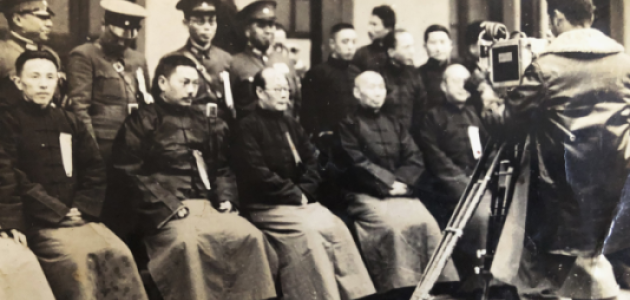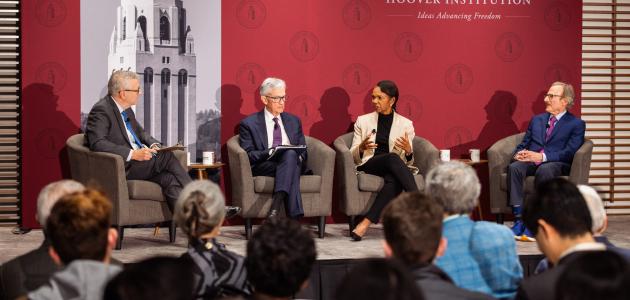Librarian William Boreysza, who served as a cataloger in the Hoover Institution Library for 31 years, died quietly in his sleep on May 14. Known as Bolek to his friends, he was a well-known figure in the Polish émigré community. He was hired by the Hoover Library in 1959 and left in 1990 at age 69. Today Hoover Library readers can often see a lightly penciled WB in the books that he cataloged over the years. His quiet profession contrasted with the tumultuous history that swept him up in his younger years, when he was a witness to the turmoil of Poland in World War II.
Boleslaw Boreysza's birth was registered in 1921 in the Polish-Lithuanian city of Wilno. He was born on an army hospital train en route from Lwow to Wilno. When Poland was attacked and partitioned by Germany and Soviet Russia in 1939, he joined the underground resistance against the invaders. Arrested by the Lithuanians and turned over to the Russian NKVD, he was sent first to Moscow and later to a labor camp in the Gorki district. He was released in 1941 under the amnesty negotiated between the Polish government in exile and Stalin. Boreysza's original camp release certificate is one of the 13,000 such documents preserved in Hoover's Polish Ministry of Information Collection. As a member of the Polish army formed in the Soviet Union, he went to Iran, where he was trained in the Officers' Academy, and then to Palestine and Italy. He saw combat in with the Eighth British Army (Second Polish Corps) and was wounded, losing his left eye in the Battle of Monte Cassino in 1944.
After the war he emigrated to Canada, where he studied political science at the University of British Columbia. He received a master's degree in library science from the University of Washington in Seattle in 1956. While working at a library in Ohio, he was recruited for the Hoover Library by Witold Sworakowski, Hoover Institution assistant director for Library Operations. In addition to cataloging, Boreysza helped Sworakowski build Hoover's East European collections during the 1960s.
Although Boreysza at times sought solitude on prospecting trips in the wilderness of British Columbia, he frequently entertained friends at his Palo Alto home, where Polish graduate students and visitors gathered for his celebrated Thursday dinners.
The Hoover Institution, founded at Stanford University in 1919 by Herbert Hoover, who went on to become the 31st president of the United States, is an interdisciplinary research center for advanced study on domestic public policy and international affairs. It includes a world-renowned archives with more than sixty million documents, constituting one of the world's largest repositories of materials on social, economic, and political change.
Information contributed by:
Irena Czernichowska
Elena Danielson
Maciej Siekierski
Zbigniew Stanczyk













